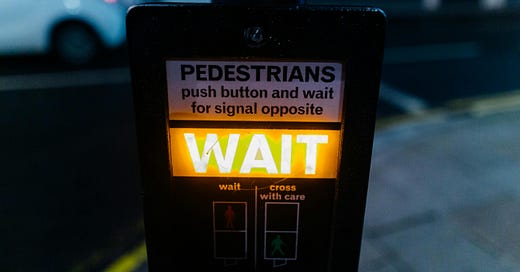Transport Committee: Warm Words Won’t Fix Accessibility
Parliamentary committee accuses government of slow progress and lack of ambition
You can listen to the main article in this newsletter here:
The dispute between the Transport Select Committee and the Department for Transport (DfT) over the state of accessibility in transport and aviation in the UK enters a new round. After the publication of the Committee’s report, “Access Denied: Rights Versus Reality in Disabled People’s Access to Transport,” and the government’s subsequent response, the Committee Chair, Ruth Cadbury MP (Labour), criticised the lack of urgency and ambition by the DfT.
Ruth Cadbury said, “There are warm words and some promising signs in this response to our report. But taken together, there is a disappointing lack of urgency to deliver real, lasting progress and improve the daily lives of disabled people, to close the gap between rights and reality. Our inquiry heard so much evidence from disabled people about how their ability to work, access services and socialise is denied by transport services that fail to live up to the promises of equality legislation and policies. This can’t go on.”
No Urgency
The DfT’s response pledges to review accessibility laws and acknowledges the need for improvement. A spokesperson said, “It’s clear that accessibility has been an afterthought in developing transport services, and there is more to do to ensure everyone can travel easily and with dignity.” But again, set no goals or dates to achieve improvements.
The Committee’s press release notes that while the government has pledged to review the law, it has failed to commit to the scale and speed of change needed to address the systemic failings identified in the report. The Committee warns that without a clear timetable, dedicated resources and a streamlined enforcement of accessibility, disabled people will continue to face barriers to independent travel. The Transport Committee argues that the current approach - piecemeal improvements, slow progress, and limited enforcement - has failed disabled people.
No Ambition to Deliver
The DfT’s response, focusing on further reviews, falls short of the Committee’s expectations and those of the disabled people who gave evidence to the inquiry, including me.
This dispute between the Transport Select Committee and the Department for Transport is about more than policy detail - it is about whether the UK will deliver on its promise of equal access to transport for all. As the Committee has made clear, only urgent, systemic change will end the daily barriers faced by disabled people. We really don’t need more warm words. It’s really a matter of leadership.
More about the Committee’s report in a previous edition of this newsletter.
Some interesting links
Kelly Buckland has been an American disability rights advocate since 1979. He became disability policy advisor at the US Department of Transportation. While Buckland was serving under Secretary Pete Buttigieg, the DOT made headlines for a record $50 million fine against American Airlines for its treatment of disabled passengers and a rule that enhanced protections for disabled travellers. In an interview with “New Mobility”, Buckland discussed the threat posed by a coalition of major airlines to sue and nullify some of those disability protections.
A disabled photography student has spent 10 days travelling more than 850 miles across England using public buses to highlight the challenges faced by disabled bus pass holders.
London’s black cab drivers will soon be required to complete new assessments on assisting wheelchair users and other disabled passengers, according to the Mayor of London. The move comes as Transport for London (TfL) prepares to introduce a mandatory assessment on safety, equality, and regulatory responsibilities for both new and existing drivers.
Something to read
The Department for Transport has published its research on the experiences of disabled people travelling by rail in Great Britain. The research identified six categories of barriers to rail travel: physical, social, informational, sensory / emotional, motivational / confidence, and financial barriers. I wish all these research pieces would finally trigger some sustainable actions. I’m getting a bit tired of reading the same outcomes over and over again.
Something to watch
#SilentButtons is a campaign to highlight the barriers of inaccessible infrastructure for Deaf people. Remember it next time when someone wants to replace staff with help points.
Some final words
The Accessible Link is a reader-supported publication. So, if you like what you’re reading, consider to
As a paid subscriber, you will receive an additional edition every two weeks with best-practice tips on improving accessibility in your organisation.
Who is writing this newsletter?
I’m Christiane Link, and I improve the customer experience in aviation, transport, and travel. I worked as a journalist for over two decades and travelled extensively for business and leisure. I’m a wheelchair user.
Work with me
Whether you're a Customer Service Director, a Head of Customer Experience, a corporate Accessibility manager, a DEI leader, a transport planner, or a disabled employee resource group member, I can help you to make your organisation more inclusive. You can book me for speaking engagements or hire me as a consultant for your accessibility or DEI strategy, communications advice and other related matters. I have worked for airlines, airports, train operators, public transport providers, and companies in other sectors.
If you want to read more from me, follow me on LinkedIn, Twitter, Bluesky or Mastodon. You can also reply to this email if you want to contact me.
.





